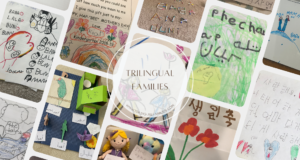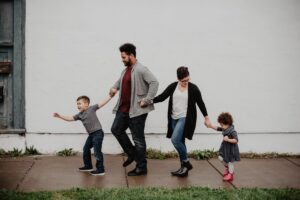
TRILINGUAL FAMILIES IN THE U.S.A.: HARMONOUS
MULTILINGUALISM IN ACTION

Our Project
Immigrant and transnational families in the United States struggle to maintain their heritage languages due to linguistic colonialism and monolingual policies (de Jong, 2013; García & Li, 2015; Ortega, 2020). Our project aims to help families sustain harmonious multilingualism (HM) and foster their children’s language and literacy competence, contributing to social change and normalizing multilingualism in the larger society.
This project investigates HM in immigrant and transnational families with children aged two to 12 in various geographical, sociopolitical, cultural, and linguistic contexts. As researchers, we are developing this website featuring families’ stories, strategies, and research-based guidelines promoting HM for families and practitioners. Focusing on ten trilingual immigrant and transnational families in the United States, we utilize the concepts of linguistic citizenship (Lim et al., 2018) and harmonious bilingualism (De Houwer, 2015, 2020) to explore what HM means to families and how they negotiate and develop HM. The primary data sources include surveys, interviews, and family-generated and documented artifacts related to HM that are analyzed through qualitative thematic analysis. The project seeks to empower multilingual families who need to combat linguistic colonialism and promote related social change across the globe.

Our Mission
Trilingual Families was founded with the vision of empowering immigrant families to preserve their languages and cultures in the United States.
Join Our Multilingual Community
Start your journey towards harmonious multilingualism with us – embrace diversity and linguistic richness in your family!
Contact us at [email protected]
This website was financially supported by HaBilNet, the Harmonious Bilingualism Network.
